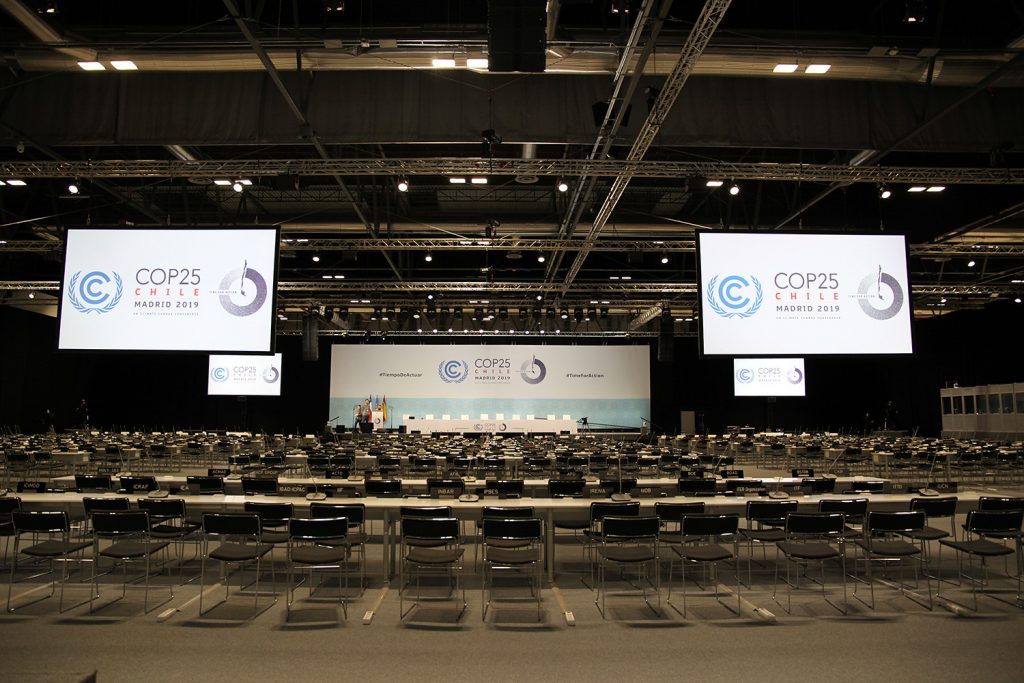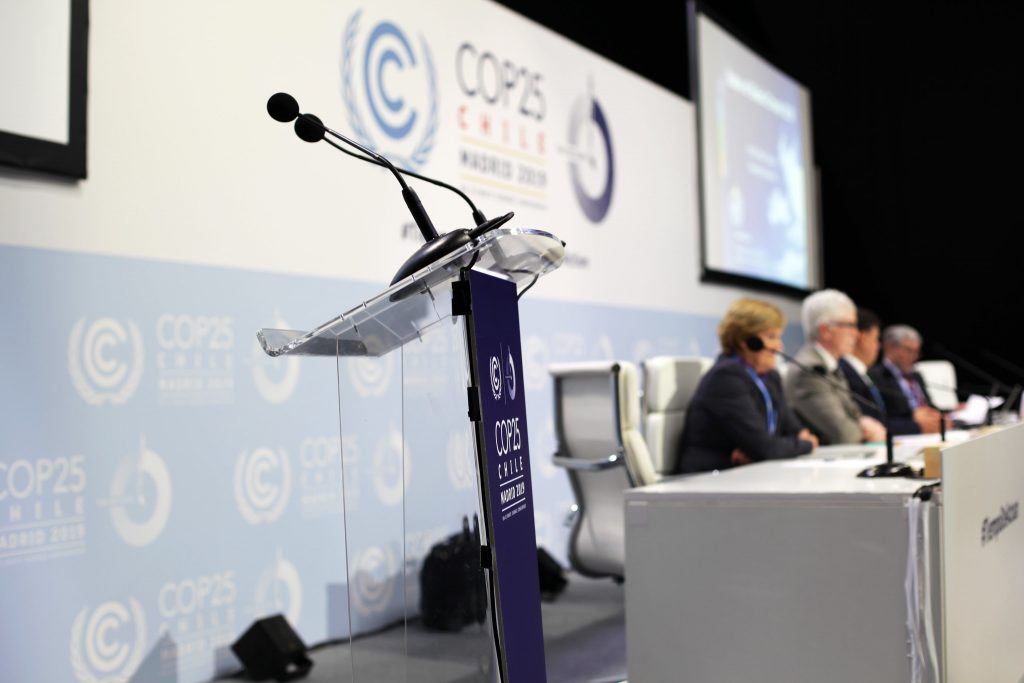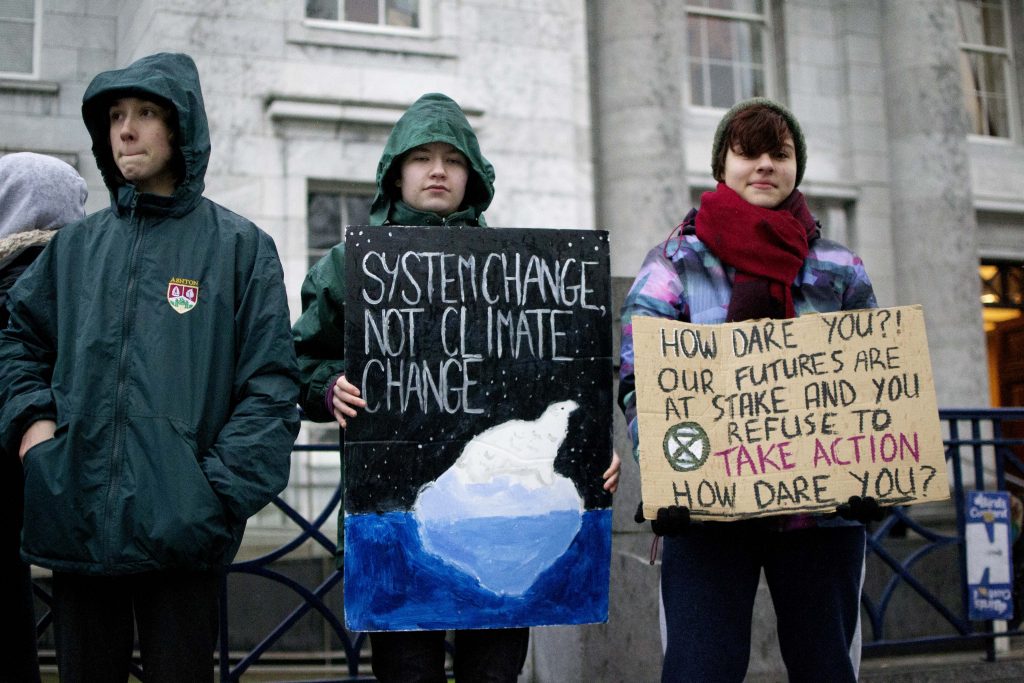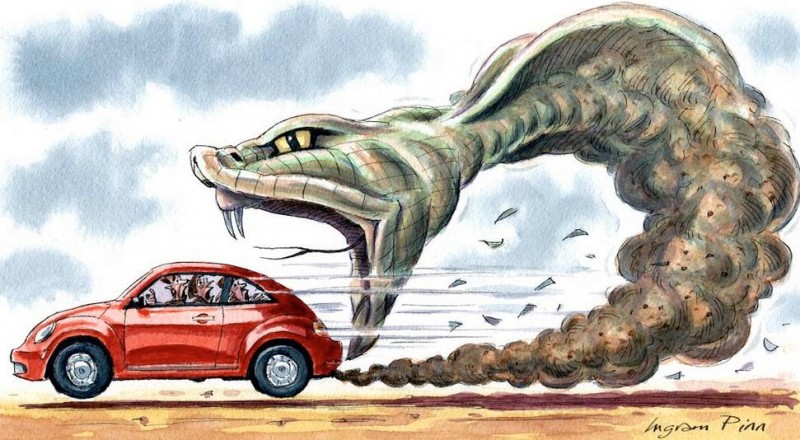COP25: Youth voice the silver lining to a dark cloud

December 16th, 2019
On Thursday, the official penultimate day of COP25, the energy in the conference halls seemed low as negotiations across the board were blocked.
Tensions were also high owing to the UN’s reaction to a peaceful civil society protest led by Latin American indigenous voices inside the COP venue the day before, with 300 protesters forcefully shoved out of the building. Some even had their badges ripped up in front of them.
Then, after an extended weekend of negotiations the final decisions made – or lack thereof – must have felt like Groundhog Day for those who have attended climate summits over the last 25 years.
Every year, the science tells leaders the time for action is now. Every year indigenous peoples tell of how they are losing inherited knowledge and culture. Every year, developing countries tell of how unpredictable weather patterns are compounding efforts to tackle poverty and inequality.
Yet, every year world leaders fail to unite against the global climate struggle. In a time when consensus and solidarity were desperately needed, it seems that divisions were stronger than ever as wealthy developed nations were, again, unwilling to compromise on their national self-interest.

The ‘climate criminals’
Certain states were referred to as ‘climate criminals’ such as the United States, who, despite planning to leave the Paris Agreement, continued to hang around the talks blocking negotiations and reducing ambition across the board. Brazil too turned up to disrupt, with the Climate Action Network presenting the South American nation with a ‘colossal fossil’ award on the final day.
Everyone arriving at the venue on Friday knew they were preparing for a long night ahead, eventually turning into an unwanted long weekend as negotiations stalled right up to Sunday evening. And the result was not worth the wait.
As the negotiations continued over the weekend it was apparent that those in power were going to fail us as rich countries blocked all progressive measures and failed to send clear political signals to address ambition in the long-term goals of the Paris Agreement.
This COP will be seen by many in civil society and those from developing countries as a failure – a COP which didn’t listen to, or heed the advice of, the ever-mounting evidence of the climate crisis.
What we needed coming out of this summit was a clear mandate for countries to submit new plans to reduce emissions in their nationally determined contributions (NDCs) by next year’s COP. We also needed increased ambition to support developing countries to address and act on the climate emergency. Many issues it seems have just been kicked down the road for COP26.
The rules that govern global carbon markets (Article 6 of the Paris Agreement) were one such issue. This was a priority coming into this COP as it was the only issue of the Paris rulebook that was not concluded last year’s summit in Katowice.
The debate around carbon markets was slow as Brazil, Australia and India pushed for lax regulations that would allow them to cheat the system and create climate loopholes. In the end, the discussion on Article 6 was not concluded and will now be pushed back until the 2020 summit in Glasgow. On carbon markets, at least no deal was better than a bad deal.

Warsaw International Mechanism
At the beginning of COP25, there was hope that there would be progress with the Warsaw International Mechanism (WIM) for loss and damage review, and that those negotiating would listen to the needs of developing countries and agree to provide additional finance.
Countries most affected by climate change wanted clarity on the provision of new and additional finance and called for an expert action group and a network for enhancing on-the-ground implementation. These issues were questioned and debated by developed countries that wished to use only existing finance.
Again, we saw a disappointing outcome, with only a vague mandate for the Green Climate Fund to address loss and damage emerging, failing the many developing countries that so clearly called for more climate justice. The fight for new and additional resources will now be brought to Glasgow.
While the enthusiasm in the statement from our Minister for Climate Action Richard Burton had a very welcome ring to it, Ireland too did not seem to come to the table with very much additional ambition. The doubling of our contribution to the Green Climate Fund falls well below what other similarly sized European member states have provided.
A report from Christian Aid Ireland and Trócaire released at the beginning of COP made it clear that Ireland would need to increase its climate finance contributions from €80 million to €475 million a year to meet its fair share of global responsibility.

The silver lining of youth
The legacy of COP25 will be failure as those in power ignored the science, and the calls of the youth, indigenous communities and developing counties on the front lines of the climate battle.
The powerful youth voice at the summit will at least give the summit a tinge of hopeful remembrance as they presented the need for climate action in clear black and white.
They stormed the plenary stages, hosted press conferences, challenged ministers, held demonstrations, mobilised 500,000 people to march on the streets of Madrid, and wandered the negotiations halls with green war paint on their faces to remind us all why we are here.
They stood up and told the world straight. The Ugandan school strikes Nakabuye Hilda Flavia said that she would “rather fail my exams than my generation”. Ireland’s own Saoi O’Connor also boldly stated that negotiators were “not putting value on our lives, our countries, our future”.
They made it clear that their generation was here, that they are knowledgeable, and that they are watching those in power. Today’s youth are tomorrow’s voters and policymakers should take heed.
The youth will be back next year with even more support, breathing down the neck of negotiators, ready to continue their fight to change the dire direction in which we are currently heading.
By Jennifer Higgins
Jenny is the Policy and Advocacy Advisor Christian Aid Ireland and was in Madrid for COP25







